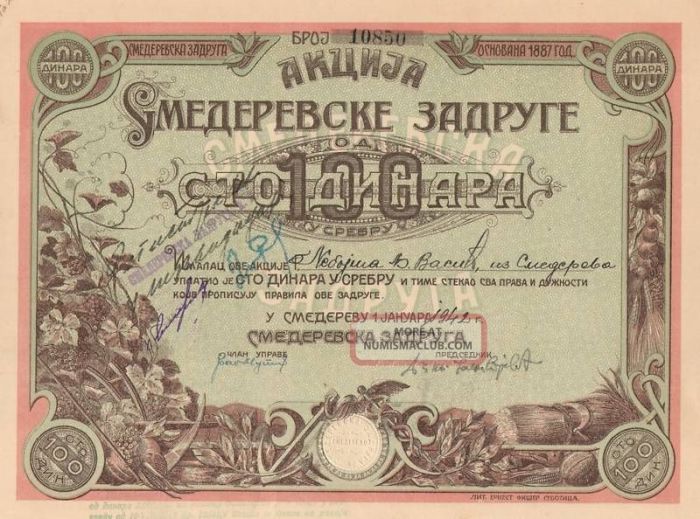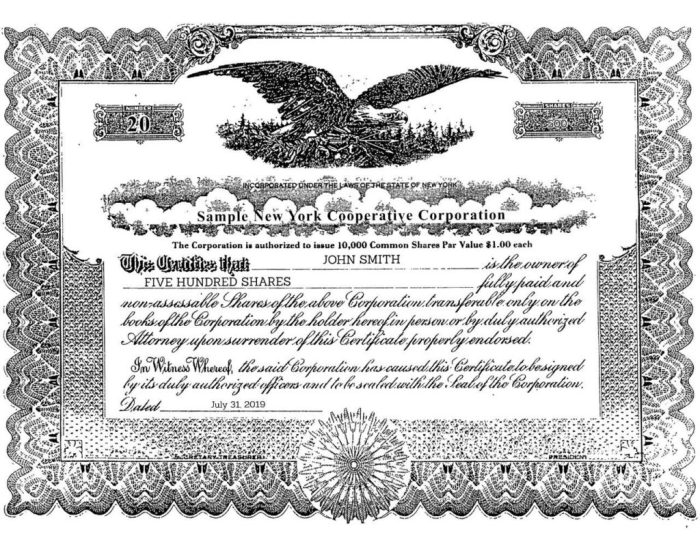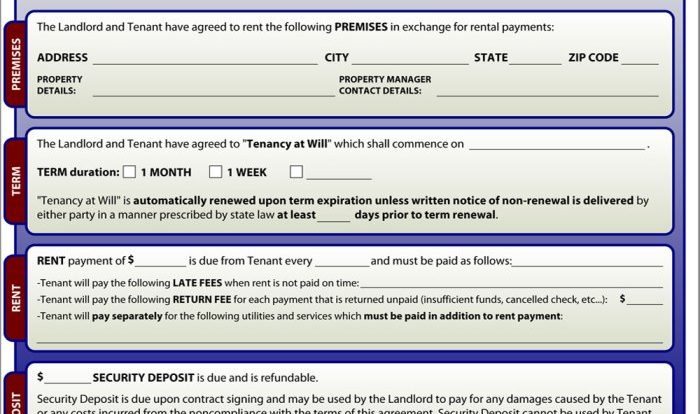Adding name to co op stock certificate – In the realm of cooperative ownership, the addition of a name to a stock certificate holds significant legal and practical implications. This guide delves into the intricacies of this process, providing a comprehensive understanding of the circumstances, procedures, and legal considerations involved in adding a name to a co-op stock certificate.
The content of the second paragraph that provides descriptive and clear information about the topic
Stock Certificate Ownership Details

A stock certificate is a legal document that represents ownership of shares in a company. It typically includes information such as the company name, the number of shares owned, the owner’s name, and the date of issuance. Stock certificates are important because they provide proof of ownership and allow shareholders to exercise their rights, such as voting and receiving dividends.
Legal Implications of Stock Certificate Ownership, Adding name to co op stock certificate
Owning a stock certificate carries several legal implications. Shareholders are entitled to the rights and privileges associated with their shares, including the right to vote on company matters, receive dividends, and share in the company’s profits. However, shareholders are also subject to the liabilities of the company, which means they may be held responsible for the company’s debts and obligations.
Adding a Name to a Co-op Stock Certificate
In some cases, it may be necessary to add a name to a co-op stock certificate. This can occur when a co-op unit is sold or transferred, or when a new owner is added to the property. The legal and administrative procedures for adding a name to a co-op stock certificate vary depending on the specific co-op and its governing documents.
Legal and Administrative Procedures
- Contact the co-op’s management company or board of directors to obtain the necessary forms and instructions.
- Complete the forms and provide any required documentation, such as proof of ownership and identity.
- Submit the forms and documentation to the co-op’s management company or board of directors for processing.
- Pay any applicable fees associated with the name addition.
Required Documentation and Forms

The specific documentation and forms required to add a name to a co-op stock certificate vary depending on the co-op and its governing documents. However, some common documents and forms include:
- Stock transfer form
- Assignment of stock certificate
- Proof of ownership (e.g., deed, closing statement)
- Proof of identity (e.g., driver’s license, passport)
It is important to obtain the correct forms and complete them accurately and completely to ensure a smooth and timely name addition process.
Processing Time and Fees
The processing time for adding a name to a co-op stock certificate can vary depending on the co-op’s procedures and the volume of requests. Typically, the process can take several weeks to complete.
There may also be fees associated with adding a name to a co-op stock certificate. These fees can vary depending on the co-op and its governing documents.
To track the progress of the name addition process, it is advisable to contact the co-op’s management company or board of directors.
Legal Considerations
Adding a name to a co-op stock certificate has several legal implications. It is important to understand the impact of adding a name to the certificate, including the changes to ownership rights and liabilities.
If there are any concerns or questions about the legal implications of adding a name to a co-op stock certificate, it is advisable to seek legal advice from a qualified professional.
Alternative Methods of Ownership: Adding Name To Co Op Stock Certificate

In addition to adding a name to a co-op stock certificate, there are other alternative methods of ownership for co-op stock, such as joint tenancy or tenancy in common.
Joint Tenancy
Joint tenancy is a form of ownership where two or more people hold title to property jointly. In a joint tenancy, the owners have equal rights to the property and share equally in any profits or losses. Upon the death of one joint tenant, their interest in the property automatically passes to the surviving joint tenant(s).
Tenancy in Common
Tenancy in common is a form of ownership where two or more people hold title to property as separate individuals. In a tenancy in common, each owner has a specific share of the property and can transfer or sell their share independently.
Upon the death of one tenant in common, their interest in the property passes to their heirs or beneficiaries.
The choice of ownership method depends on the individual circumstances and preferences of the owners.
Essential Questionnaire
What are the legal implications of adding a name to a co-op stock certificate?
Adding a name to a co-op stock certificate alters the ownership rights and liabilities associated with the property. It is crucial to seek legal advice to fully understand the implications and ensure compliance with applicable laws.
What alternative methods of ownership are available for co-op stock?
Joint tenancy and tenancy in common are alternative ownership methods that offer different advantages and disadvantages. Joint tenancy grants equal ownership rights to multiple individuals, while tenancy in common allows for the division of ownership interests.
How can I choose the most appropriate ownership method for my circumstances?
The choice of ownership method depends on individual circumstances and preferences. Factors to consider include the number of owners, desired level of control, and potential tax implications.
